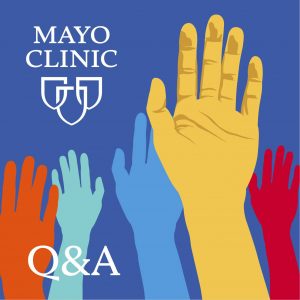-
Mayo Clinic Q&A podcast: Advancing colorectal cancer screening with AI

Colorectal cancer is the third most common cancer worldwide, accounting for almost 2 million new cancer cases each year, according to the World Health Organization.
Colorectal cancer, also known as bowel cancer, typically affects older adults, although it can happen at any age.
Screening for colorectal cancer is important to identify precancerous polyps that could develop into cancer, and several screening options are available to patients.
But which screening tool is right for you?
"The best screening tool is the one you're willing to get," says Dr. James East, a gastroenterologist at Mayo Clinic Healthcare in London. "There's no point in being set up for a colonoscopy if you're not willing to come for it. And there are a wide range of options now for bowel cancer screening — all of which provide substantial protection against bowel cancer."
Screening test options for colorectal cancer include:
- Colonoscopy.
- Stool DNA test.
- Fecal immunochemical test.
- Virtual colonoscopy, or CT colonography.
While effective screening tools exist, research using artificial intelligence (AI) to develop better techniques to detect polyps is hoping to improve screening even further.
"I think the role of AI in endoscopy is huge. And it's it's coming to clinical care," says Dr. East. "This is really translating facial recognition technology, but instead of recognizing faces, the AI recognizes polyps at an astonishing rate during a live colonoscopy. This is really a game changer for us."
On the Mayo Clinic Q&A podcast, Dr. East discusses advances in colorectal cancer screening.
Watch: Dr. East discuss colorectal cancer screening.
For more information and all your COVID-19 coverage, go to the Mayo Clinic News Network and mayoclinic.org.








